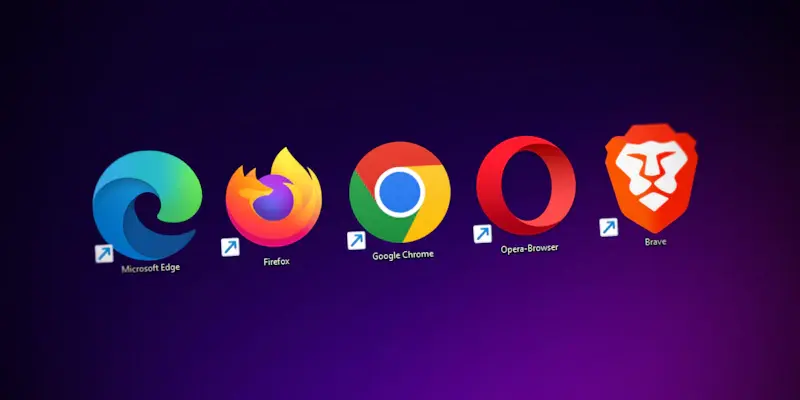Microsoft’s Edge browser had a significant year in 2024, marked by numerous achievements and notable challenges. Despite boasting impressive usage statistics, Edge’s market share growth has remained relatively marginal. This year-end review delves into the key accomplishments and hurdles faced by the browser over the past year, shedding light on its current position in the competitive landscape of web browsers.
Key Achievements
One of the most prominent accomplishments for Edge in 2024 was its integration of AI-powered features. Microsoft reported over 10 billion AI-powered chats conducted with Copilot within Edge, an impressive feat reflecting the increasing reliance on AI for enhanced browsing experiences. Additionally, the browser facilitated the translation of a staggering 38 trillion characters through its auto-translation feature. Another highlight was the significant memory savings achieved on PCs through the implementation of sleeping tabs, helping users optimize their device performance.
Market Share Analysis
Despite these achievements, Edge’s market share saw only a modest increase in 2024. According to Statcounter, Edge’s desktop market share rose from 11.9% in December 2023 to 12.87% by November 2024, an increase of less than 1%. This slow growth contrasts with Google Chrome’s continued dominance, as Chrome’s market share increased slightly from 65.23% to 66.33% over the same period. The data underscores the challenges that Edge faces in capturing a more significant portion of the browser market.
Historical Context and Comparison
To understand Edge’s current position, it’s essential to consider its historical context. Microsoft’s Internet Explorer (IE) suffered from a decline due to its clunky interface and compatibility issues, prompting users to turn to alternatives like Chrome for a better browsing experience. In response, Microsoft transitioned from IE to Edge, initially using the proprietary EdgeHTML engine. However, to enhance performance and compatibility, Microsoft later adopted the Chromium-based engine for Edge, aligning it more closely with Chrome in terms of functionality.
Challenges and Strategies
Edge’s reliance on the Chromium engine presents a unique set of challenges, particularly in differentiating itself from other Chromium-based browsers, such as Chrome. The perception of Edge as merely a tool for downloading Chrome persists among many users. Microsoft’s efforts to promote Edge have faced criticism from competitors, who accuse the company of engaging in unfair practices. Despite these hurdles, Microsoft emphasizes Edge’s capabilities in areas like password protection and content delivery, with statistics showing the protection of 7.3 billion passwords monthly and 800 million articles viewed on MSN.
Future Prospects
Looking ahead, Microsoft remains focused on leveraging AI tools to enhance user productivity and overall experience. However, for Edge to achieve significant market share growth in 2025, the company will need to introduce more innovative strategies beyond its current AI-powered features. Strengthening these tools and exploring new ways to differentiate Edge from competitors will be crucial for Microsoft’s future success in the browser market.
Summary of Main Findings
Throughout 2024, Microsoft achieved high engagement with Edge’s AI-powered features and made notable performance enhancements. However, the browser experienced minimal market share growth, with Google Chrome continuing to dominate. Edge faces challenges in standing out among Chromium-based competitors and changing its perception as a secondary browser. Despite these obstacles, Microsoft remains committed to integrating AI and enhancing security features, positioning Edge as a competitive option in the market.
Conclusion
Microsoft’s Edge browser had an eventful year in 2024, marked by a variety of commendable achievements and formidable challenges. Though it showcased impressive usage statistics and continued to enhance user experience, Edge’s market share growth remained relatively modest. Throughout the year, Edge introduced several innovative features aimed at improving browsing speed, privacy, and security. These included advanced tracking prevention measures, heightened security protocols, and seamless integrations with other Microsoft services such as Teams and Office 365.
Moreover, Edge focused on enhancing its performance on different operating systems, ensuring a consistent experience across Windows, macOS, iOS, and Android. Despite these advancements, the browser faced significant competition from established leaders like Chrome and Firefox. Users remained loyal to these predominant browsers, posing a challenge for Edge’s market penetration.
This year-end review highlights the significant strides made by Edge, scrutinizing both its accomplishments and the obstacles that hindered its expansion. As it stands, Edge competes in a tough arena, aiming for a larger slice of the web browser market but still wrestling with the dominance of its competitors. This dynamic paints a vivid picture of Microsoft Edge’s current standing in the ever-evolving world of web browsers.

